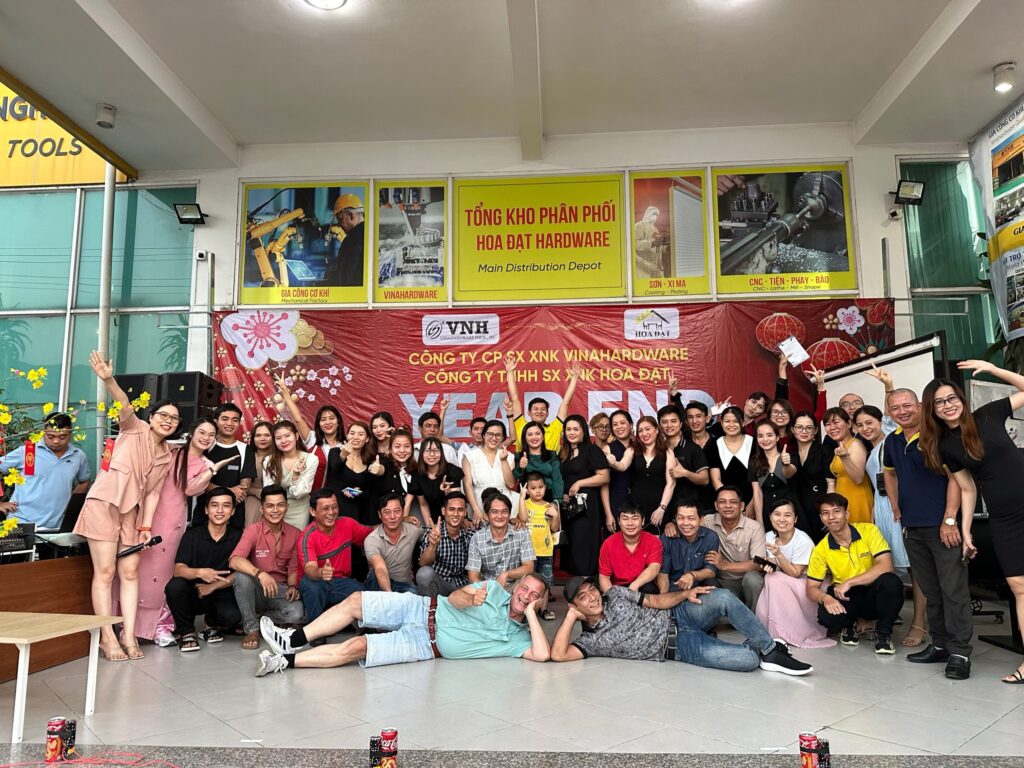Henrik Pontoppidan, Director of S2U Design, talks about connecting with suppliers in Vietnam and the power of the contract.
Connecting Socially with Your Vietnamese Suppliers
Business and trade have a unique ability to build personal relationships across borders. In Vietnam, these relationships are the backbone of business. The Vietnamese are hospitable and curious about mingling with foreigners. Connecting outside of work can smooth business dealings, but keeping business and pleasure separate is essential. Once you’ve established good chemistry, you’ll likely be invited into your partner’s personal life, whether it’s a wedding, company event, or a game of tennis. Participating can deepen your business relationship and is genuinely enjoyable—Vietnamese people are full of humour and charm.
Being invited to a Vietnamese home is a special honour. Here, it’s about socializing and having fun, not talking business. Just remember to leave your shoes at the door and be ready for ice-breaker questions like your age, which help them use the right pronoun. Vietnamese culture values being well-connected, especially with influential people. While connections can help navigate bureaucracy, it’s safer to understand the laws and regulations yourself before relying solely on others. Still, embrace social invitations—they might lead to valuable introductions that make navigating Vietnam’s business environment easier.
Power of the Contract
For ten years, I imported furniture from Vietnam, Indonesia, and China for my UK business, OAKEA. Yet, I never grasped the significance of the Vietnamese contract until I set up my company in Vietnam in 2019. A Vietnamese contract is technically a legal requirement, requiring formal signing and stamping with a company seal. This practice, rooted in older Vietnamese law, was originally meant for government oversight on business transactions. While not often enforced for export orders today, it holds importance for domestic transactions.
The contract starts with ‘Socialistic Republic of Viet Nam’ and the slogan ‘Freedom – Happiness – Independence’ (Tự do – Hạnh phúc – Độc lập), followed by the decree and identification of ‘Party A and Party B.’ It outlines obligations, delivery terms, product specifications, prices, and payment terms. Both parties’ directors must sign and stamp each page. Although this process seems bureaucratic from a Western perspective, it ensures your agreement is respected and adhered to by your supplier without implying distrust. Had I known its power when importing for OAKEA, I would have used it all the time. Now, with S2U Design, I always use it for traded orders.

Price Negotiations in Vietnam
In Vietnam, it’s essential, in order to achieve the best possible results, to fully understand – before entering into any negotiations – some of the reasons why Vietnamese manufacturers can sometimes appear unfocussed, impulsive and reluctant to give in, and offering their lowest price point. If the points below are fully understood by the western buyer, it is much easier for her/him to argue the right way for better prices:
- High Demand for Quotes: Manufacturers get flooded with requests, but only a fraction turn into orders.
- Uncertainty and Silence: Suppliers often aren’t told when they’ve lost a deal, leading to skepticism and hesitance in prioritizing new opportunities.
- Skepticism Toward Long-Term Promises: Past experiences make them doubt verbal promises of large, ongoing business.
- Frustration Over Delays: Buyers often feel suppliers are dragging their heels, not realizing the hesitation stems from a need to protect their interests.
- Manufacturer frustration Over changing requirements: Buyers’ request changing specifications over and over, and each change requires a new calculation process. This shortens the manufacturer’s attention span.
These points highlight the need to spark genuine interest in your business and the necessity to understand that customer is not always king. Without demonstrating real intent to move quickly under the right circumstances, while being clear, concise and consistent in formulating your requirements and specifications, you will experience high prices being quoted – after a too long wait. To navigate this landscape effectively, follow these steps:
- Prepare for the Negotiation: Understand the factory’s capabilities and cost structure, and know the market prices for similar products. Be clear on the price you’re willing to move forward with.
- Be Honest with Your Target Price: Unrealistic requests can turn off the factory. A fair target price builds trust and encourages a genuine wholehearted effort to match it.
- Pre-Close the Deal: Prepare a realistic provisional order based on your research and target prices to speed up the process. The manufacturer will see you mean business.
- Meet Face-to-Face: Whether in person or via video call, this personal touch shows commitment and builds rapport.
- Bond Over a Meal or Drinks: Socializing with your supplier will always achieve better prices – a little better or a lot better.
Understanding the manufacturers’ situation, and following these steps you will capture your supplier’s attention, ensuring quicker responses and the best possible prices. This approach fosters a strong business relationship, keeping your supplier on board for the long term.
If you need help with your activities in Vietnam, don’t hesitate to reach out.
CTY TNHH S2U Design Vietnam
S2U Design Denmark ApS
Tel (UK) +44 (0)1432 851 824
Tel (VN) +84 (0)82 7600 171
email: henrik@s2udesign.co.uk
www.s2udesign.com















